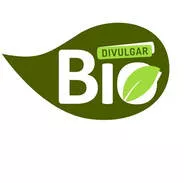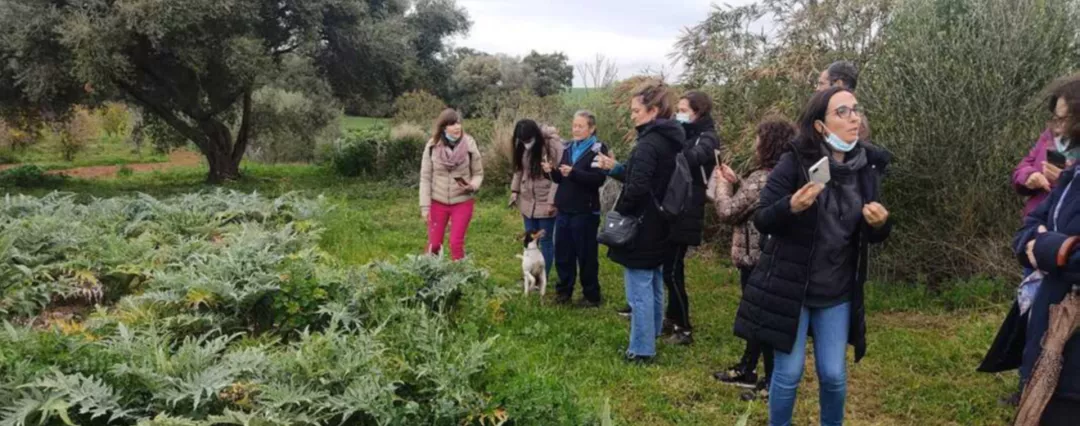General information
RDP Priority
- P4. Ecosystems management
RDP Focus Area
- 4A: Biodiversity restoration, preservation & enhancement
- 4B: Water management
- 4C: Soil erosion & soil management
RDP Measure
- M20: Technical assistance
Beneficiary type
- Public authority / body
Summary
The collaborative Divulgar Bio project was led by the Polytechnic Institute of Coimbra in Portugal, to promote and increase the production of organic fruit and vegetable to better meet existing domestic demand. Despite restricting circumstances due to the COVID-19 crisis, a range of awareness-raising events, workshops, and organic farm visits were undertaken to address common concerns, share experience, and motivate farmers to transition to organic farming. The project activities were complemented by the production and dissemination of promotional material and manuals providing technical know-how, and geared to assist farmers in transitioning from conventional to organic production.
The project focused on the vegetable and fruit sectors where domestic demand and supply were furthest apart from each other, pointing to a significant potential for growth and development.
Results
- Eight workshops were held with 174 participants.
- 29 farmers and technicians participated in a visit to an organic-certified area.
- 72 farmers and technicians participated in visits to organic farms and marketing organisations.
- 13 farmers and technicians participated in a visit to Spain.

Promoter
Instituto Politécnico de Coimbra
Funding
RDP support: 80 318 (EUR)
Ressources
Documents
Context
According to the National Strategy for Organic Agriculture (NSOA), Portuguese production has struggled to meet the rising domestic demand for organic products. This resulted in an increase in imports. For example, 49% of organic fruit and vegetables sold originates from outside Portugal. In addition, the NSOA identified insufficient technical knowledge as one of the main barriers to expanding organic production in Portugal.
There was a clear need to address how the demand could be better met by domestic production and develop a communication plan that would help clarify and deepen the specific technical knowledge about organic farming. Good examples and best practices needed to be promoted more effectively to better demonstrate that perceived challenges could be overcome. A range of different audiences from different agroecological contexts across the country needed to be reached so that their questions and concerns about organic farming could be discussed. The idea was that open debate and the dissemination of better information, knowledge, and best practices would help encourage those farmers who were inclined to transition from conventional to organic vegetable and fruit production.
A partnership formed to address the challenge and design a relevant project. This was led by the Polytechnic Institute of Coimbra (IPC), which coordinated the efforts, together with four local development associations and the National Horticultural Operational and Technological Centre (COTHN). The partnership approached the Portuguese National Rural Network and applied for funding.
Objectives
The overall aim of the Divulgar Bio project was to reduce the country's dependency on imports in the organic fruit and vegetable sector, and to meet existing demand thanks to domestic production. The objective was to encourage farmers in Portugal to learn about organic farming, and provide them with the knowledge of how to transition from conventional to organic agriculture. Furthermore, the intention was to develop and implement an effective communication plan, and disseminate technical material that would help raise awareness of the opportunities, share know-how and good practice, and thereby build valuable capacities.
To overcome existing barriers in perception, it was important to involve farmers in project activities from the outset. In that way, their perspectives could be adequately considered. The rationale was that active participation would increase their interest in organic farming and motivate them, and others through them, to start producing organically.
Activities
- Thematic Workshops: Organising two thematic workshops in each of the local partners’ respective territories. The workshops focused on presenting the advantages of organic farming, and identified the challenges of applying it in practice, whereby a practical approach to production, certification and marketing methods in organic farming was chosen. The overall emphasis was on the exchange of ideas, knowledge, and experiences between farmers and the facilitators. This enabled the project promoters to better understand the main concerns and information needs of farmers in order to address them in the technical manuals to be produced later on as part of the project.
- Visiting an organic certified area. This involved organising a field trip in which farmers had direct contact with organic farming techniques so they could discuss their main questions and concerns about converting to organic farming in a practical and informal setting.
- Visiting organic farms and marketing organisations. Organising a series of visits whereby each local partner could explore their respective territory and engage with relevant organic farmers. Throughout the visits, ideas were exchanged and opinions shared. The aim was to diversify the topics of reflection for the participants through contact with other agri-food systems and chains, and to strengthen the critical spirit of the project team with regard to the key issues to be included in the manuals thereafter.
- Visiting organic farms and marketing organisations in Spain. This involved the coordination of an organised visit to several organic farms in Andalusia and the organic market in Seville. The main purpose was to exchange experiences and information between technicians and farmers from both countries, with the aim of strengthening the identification of the main opportunities and challenges of organic farming.
- Producing four technical manuals titled "Organic Farming Step by Step" for farmers. The topics included (a) Soil and Water, (b) Promoting Biodiversity, (c) Management and Marketing, and (d) Conversion and Certification. The material was disseminated free of charge in paper and digital formats.
- Creating two brochures, one for horticulture and the other for fruit-growing, each presenting technical advice within the scope of organic farming.
- Organising a national dissemination event.
Main results
The project was largely implemented during the COVID-19 crisis. This severely limited face-to-face interactions. As a result, not all expected outcomes were fully realised. Nevertheless, the project implemented several activities successfully.
- Eight workshops were held with 174 participants.
- 29 farmers and technicians participated in a visit to an organic-certified area.
- 72 farmers and technicians participated in visits to organic farms and marketing organisations.
- 13 farmers and technicians participated in a visit to Spain.
- 500 copies of each of the four manuals were distributed, and all are available online.
- Two brochures were created and distributed during the final seminar and are also available online.
- 91 participants, including farmers, technicians, and project stakeholders, attended the national dissemination event.
Key lessons
- The project's participatory approach stands out as a cornerstone, and is commendable. Actively involving farmers in identifying knowledge gaps and shaping dissemination materials ensured practical relevance and effective uptake within the community.
- The project's strategic focus on sectors experiencing significant demand-supply gaps, such as vegetables and fruits, highlighted the importance of aligning the project’s interventions with national strategies for sustainable agriculture. This targeted approach maximised impact and fostered long-term growth potential in organic farming.
- The project also yielded unexpected insights, highlighting the dynamic nature of agricultural initiatives. Through engaging with farmers and stakeholders, understanding of the importance of adaptability and continuous learning was gained.
- By reflecting on implementation challenges, opportunities for improvement start to emerge. The project showed that enhancing the engagement of local development associations with local farmers increases responsiveness. Additionally, fostering collaboration with farmers' organisations and other rural stakeholders can amplify impact and promote sustainability.
